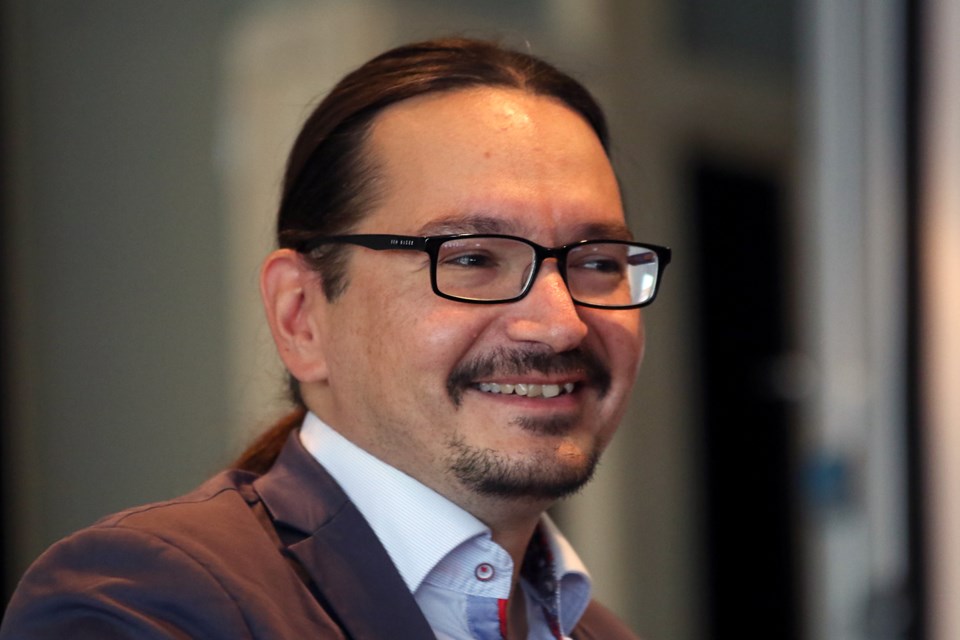THUNDER BAY – Schools were once used as a weapon against Indigenous children.
But Kevin Lamoureux says he’s hopeful that’s ancient history.
Instead he’d like to see today’s schools foster an environment of healing and empowerment, where children see themselves acknowledging the wrongs of the past and transformative for the future.
Lamoureux, a professor in the department of education at the University of Winnipeg, on Friday spent the day educating teachers and support staff at Lakehead Public Schools about the path to reconciliation and the importance of including it in the foundations of classroom work and throughout the education system.
He said reconciliation is a gift given to Canadians by residential school survivors, who had the strength and courage to make it possible to have honest conversations on the subject.
It’s also important to share ownership of it, he said.
“Reconciliation isn’t for Indigenous people. It’s for Canada, for us to be in good relationships with each other,” Lamoureux said.
“It’s a mutual benefit. I’m told that of the 94 calls to action in the Truth and Reconciliation Commissions, which I consider to be our roadmap home, 72 are about education and awareness. That puts teachers on the frontline of whatever reconciliation is, to empower our students to not walk with shame or carry a burden of guilt, but to see themselves as transformative.”
Lamoureux said even though the problem was created long ago, the after effects are still rippling throughout society today and there is an opportunity to be part of the solution.
There are plenty of steps educators can help, starting with the creation of good relationships the blossom in the classroom and spread throughout the community.
“I think that Thunder Bay in particular, because we are in close proximity to such rich and culturally vibrant First Nation communities, to be in each other lives, to share spaces, to get to know one another. I think the challenge for teachers is to find ways to help students overcome some of the messaging that they may have received at home from their parents; that those parents received from their parents,” Lamoureux said.
“We’ve all in Canada inherited a wreckage of broken relationships, through no fault of our own. But even though we didn’t create the problem, we have an opportunity to be part of the solution by helping students to reach past that prejudice, that learned otherness to really be part of something beautiful.”
Sherri-Lynne Pharand, superintendent of education at the public board, said the goal was to bring educators together on a professional development day to try to make a difference in a city that has seen its fair share of racial criticism in recent years.
She added the board is committed to human rights and equity, reconciliation and respect.
“It’s very important (reconciliation) is part of all of our children’s curriculum and that we teach the true history of Canada and that we come through the process with a mutual respect and understanding for each other,” Pharand said.
“That’s really the foundation of the work that we’re doing and moving forward, building relationships.”
